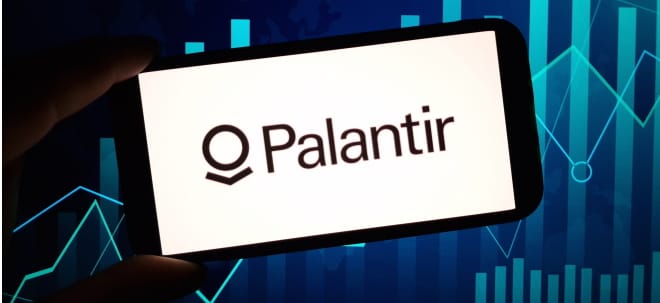New Formulations of GLP-1s Demonstrate Positive Results, Potentially Offering Additional Options for Obesity Medications
Data reveals potential for once-daily oral and monthly injectable treatment alternatives for patients with type 2 diabetes and obesity
CHICAGO, June 23, 2025 /PRNewswire/ -- Findings from two breakthrough studies reveal positive outcomes for two medications - orfoglipron and MariTide (maridebart cafraglutide) – expanding the treatment of type two diabetes and obesity. Results from the ACHIEVE-1 Trial and the MariTide Phase 2 Trial were simultaneously published in the New England Journal of Medicine (NEJM) and presented as late-breaking symposia at the American Diabetes Association's® (ADA) 85th Scientific Sessions in Chicago.
As of 2024, more than 2 in 5 adults in the US have obesity, or are severely obese. Of the over 38 million Americans who have diabetes, an estimated 90 to 95% have type 2 diabetes. Glucagon-like peptide-1 (GLP-1) receptor agonists are a well-established treatment option for obesity and type 2 diabetes. However, there is a growing need for additional options to meet patient preferences and ensure tailored care, such as oral forms or injectables with less frequent dosing.
Once-Monthly Injectable Medication to Manage Obesity Demonstrates Strong Results for Weight Management for People With and Without Type 2 Diabetes
Findings from the MariTide Phase 2 Trial demonstrating weight loss and A1C reduction in groups with and without type 2 diabetes were presented as a late-breaking symposia at this year's Scientific Sessions. MariTide is a novel long-acting GLP-1 receptor agonist and GIP receptor antagonist.
The MariTide Phase 2 trial enrolled 592 adults, of whom 465 had obesity (Cohort OB) and 127 had obesity and type two diabetes (Cohort OB-T2D). Part 1 of the Phase 2 trial assigned participants from Cohort OB to one of four monthly fixed dose regimens (placebo, 140 mg, 280 mg, 420 mg) or an every 8-week 420 mg dose regimen. Researchers included two groups that gradually increased the medication dose over either 4 weeks or 12 weeks to reach a target of 420 mg monthly. In Cohort OB-T2D (n=127), they randomly assigned adults with obesity and type 2 diabetes to one of four fixed monthly dosing groups: placebo, 140 mg, 280 mg, or 420 mg.
Results demonstrated a weight loss of up to approximately 20% on average in participants with obesity alone and a weight loss and A1C reduction of up to approximately 17% and 2.2% on average, respectively, in participants with obesity and type two diabetes. Additionally, there were improvements in cardiometabolic measures, including lower blood pressure and lipid levels. Participants continued to improve with no signs of weight plateauing, indicating the potential for further weight loss beyond the 52-week trial period.
"Once-monthly treatment options for type 2 diabetes have long been sought after, yet elusive," said Ania M. Jastreboff, MD, PhD, professor at Yale School of Medicine (Endocrinology), director of the Y-Weight Yale Obesity Research Center. "MariTide has the potential to be a once-monthly treatment option for people with obesity, with and without type 2 diabetes, resulting in substantial weight reduction and robust improvements in glycemia."
More than 90% of eligible participants have enrolled for an additional 52 weeks of the study (Part 2). Part 2 of the MariTide Phase 2 Trial is evaluating participants who lost at least 15% of their weight with the investigational product at the end of Part 1 through an additional 52-week period. Part 2 will assess MariTide's impact on sustained weight loss with lower doses, less frequent dosing, or discontinuation and is expected to conclude later this year.
Once-Daily Pill Without Food or Water Restrictions Improves Glycemic Control and Weight Loss
Findings from the ACHIEVE-1 Trial, demonstrating the safety and effectiveness of orfoglipron, the first oral small molecule, non-peptide GLP-1 RA to successfully complete a Phase 3 trial were presented as a late-breaking symposium.
The ACHIEVE-1 Phase 3 Trial was a 40-week randomized, double-blind, placebo-controlled trial designed to evaluate the efficacy and safety of orforglipron monotherapy. The study enrolled 559 patients with type 2 diabetes on no glucose-lowering medications with inadequate glycemic control across the U.S., China, India, Japan, and Mexico. Results were measured across treatment and control groups, with the latter managing weight and glycemic control through diet and exercise. Participants were randomized to orfoglipron at 3mg, 12mg and 36mg or placebo.
Results demonstrated that use of orfoglipron, taken as a once-daily pill without food or water restrictions, significantly lowered A1C levels with an average rate of 1.3% to 1.6% across doses from a baseline of 8.0%. An average weight loss of 7.9% (roughly 16lbs) at the highest dose was also demonstrated, with indication of further potential loss, as participants did not appear to have reached a weight plateau at the conclusion of the study. This contributed to 73% of participants in the treatment regimen, with potential of up to 76%, achieving an A1Ctarget of <7%. Additionally, up to 25% of participants reached near-normoglycemia levels (HbA1c <5.7%).
"This has potential to be the first oral GLP-1 medication patients can take daily, without specific dietary instructions—making it more adaptable to individual needs," said Dr. Julio Rosenstock, Senior Scientific Advisor, Velocity Clinical Research at Medical City Dallas, and Clinical Professor of Medicine, University of Texas Southwestern Medical Center. "These results represent an important step toward providing tailored treatment options for earlier intervention with a GLP-1 RA, as many people with type 2 diabetes may prefer an oral instead of an injectable medication."
The ACHIEVE-1 Trial is the first of seven Phase 3 studies examining the safety and efficacy of orforglipron across people with diabetes and/or obesity.
Research presentation details:
Dr. Jastreboff will present the findings at the following Late Breaking Symposia:
- Once-Monthly MariTide for the Treatment of Obesity in People with or without Type 2 Diabetes—A 52-Week Phase 2 Study
- Presented Friday, Monday 23, 2025 from 1:30 – 3:00pm CT
Dr. Rosenstock will present the findings at the following Late Breaking Symposia:
- Emerging Non-Peptide, Small Molecule GLP-1 Receptor Agonists—Can They Become Players?
- First Report of a Phase 3 RCT of Orforglipron, a Small Nonpeptide GLP-1RA, as Monotherapy in Drug-Naïve Type 2 Diabetes with Inadequate Glycemic Control—The ACHIEVE-1 Trial
- Presented Saturday, June 21, 2025 from 8:00 – 9:30am CT
About the ADA's Scientific Sessions
The ADA's 85th Scientific Sessions, the world's largest scientific meeting focused on diabetes research, prevention, and care, will be held in Chicago, IL on June 20-23. Thousands of leading physicians, scientists, and health care professionals from around the world are expected to convene both in person and virtually to unveil cutting-edge research, treatment recommendations, and advances toward a cure for diabetes. Attendees will receive exclusive access to thousands of original research presentations and take part in provocative and engaging exchanges with leading diabetes experts. Join the Scientific Sessions conversation on social media using #ADASciSessions.
About the American Diabetes Association
The American Diabetes Association (ADA) is the nation's leading voluntary health organization fighting to end diabetes and helping people thrive. This year, the ADA celebrates 85 years of driving discovery and research to prevent, manage, treat, and ultimately cure —and we're not stopping. There are 136 million Americans living with diabetes or prediabetes. Through advocacy, program development, and education, we're fighting for them all. To learn more or to get involved, visit us at diabetes.org or call 1-800-DIABETES (800-342-2383). Join us in the fight on Facebook (American Diabetes Association), Spanish Facebook (Asociación Americana de la Diabetes), LinkedIn (American Diabetes Association), and Instagram (@AmDiabetesAssn). To learn more about how we are advocating for everyone affected by diabetes, visit us on X (@AmDiabetesAssn).
Media Contact: Mimi Carmody, mcarmody@diabetes.org
![]() View original content to download multimedia:https://www.prnewswire.com/news-releases/new-formulations-of-glp-1s-demonstrate-positive-results-potentially-offering-additional-options-for-obesity-medications-302487774.html
View original content to download multimedia:https://www.prnewswire.com/news-releases/new-formulations-of-glp-1s-demonstrate-positive-results-potentially-offering-additional-options-for-obesity-medications-302487774.html
SOURCE American Diabetes Association


